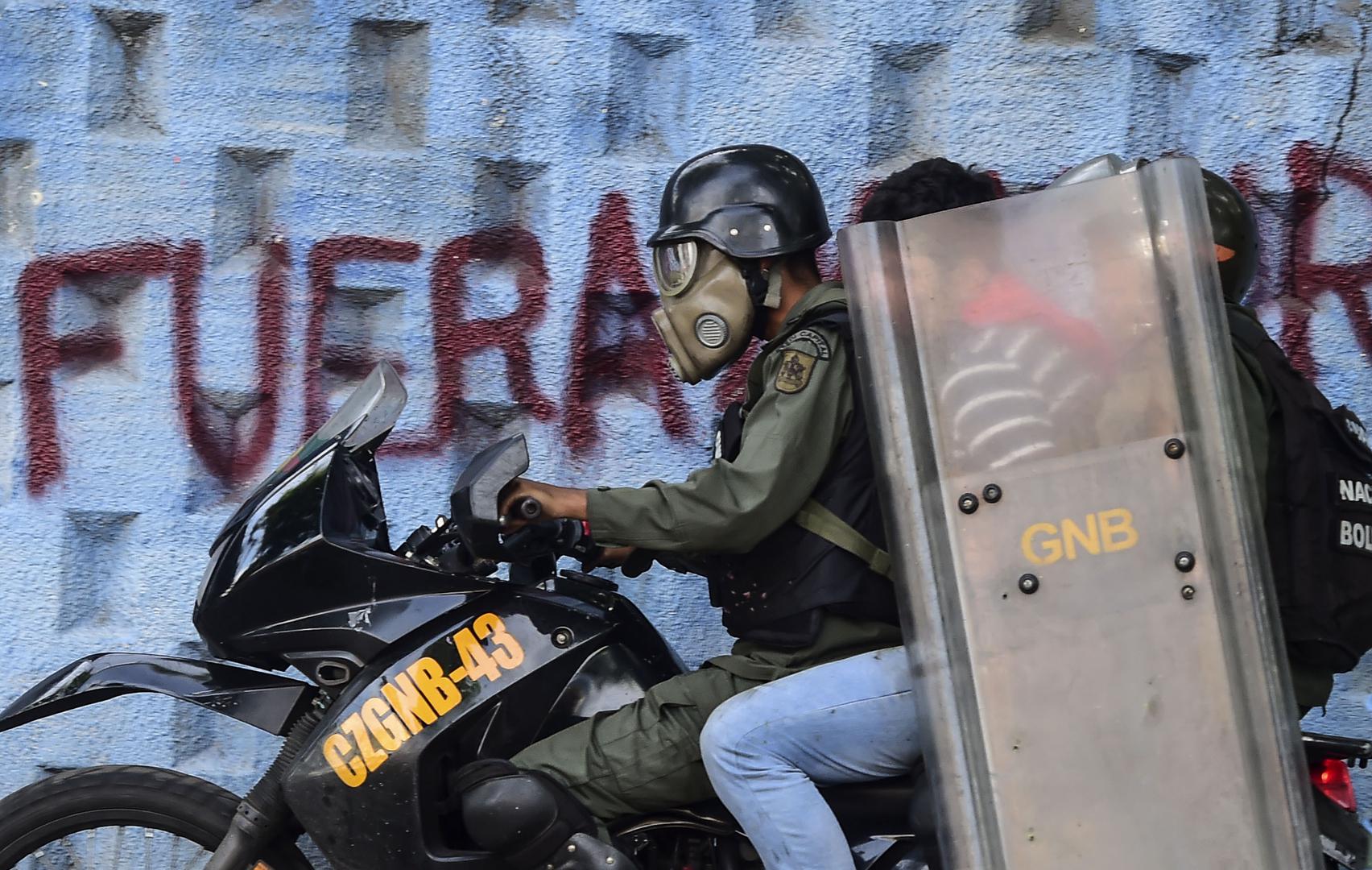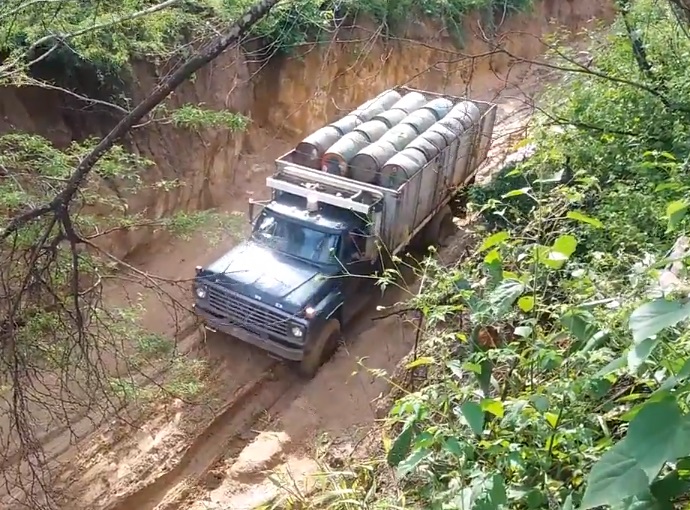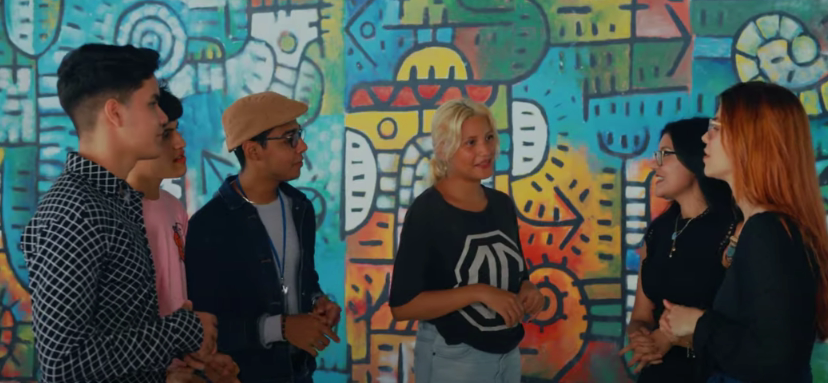This article on the irregularities in the December 6 electoral process is part of the work of Venezuela Verifica, an alliance made up of seven Venezuelan digital media outlets in a fact-checking effort to combat disinformation. It was originally published on November 30 in El Diario
The National Electoral Council (CNE), appointed by the Supreme Tribunal of Justice (TSJ) close to the government of Nicolás Maduro, celebrated an electoral process with multiple irregularities, that was considered illegitimate by the interim government of Juan Guaidó and international organizations.
Fallacies and gaps were detected in the activities carried out by the CNE to “comply” with the guidelines for the December 6 parliamentary elections.
The fact-checking team of El Diario, as part of the Venezuela Verifica alliance, compiled the most relevant irregularities regarding the organization of the electoral process by the CNE and contrasted them with the verification of experts in the area.
Do the audits of the new voting system guarantee its reliability? This is dubious
14 audits must be carried out during the electoral process to check the system, of which nine involve the automated voting platform.
As of November 30, five of the nine audits of the voting platform have been carried out:
- Voting machine file audit. October 30.
- Electoral technological infrastructure audit. October 9-13.
- Voting machine production audit. November 9-28.
- Pre-despatch audit. November 29.
The CNE reported that the audits counted on the presence of accredited national inspectors to “guarantee the transparency and reliability of the system.”
“The national observers accredited before the CNE participated in the Voting Machine Production Audit, consolidating the chain of trust and demonstrating the transparency of the Venezuelan Electoral System, a reference in Latin America and the world,” the CNE wrote on its Twitter account.
The technical coordinator of Red Electoral Asamblea de Educación (Education Assembly Electoral Network), Humberto Rojas, said that the plan adopted for the audits, due to the covid-19 pandemic, became an interpellation of the CNE technicians responsible for the automated voting system rather than an audit.
“The auditors could not test the system independently and, in the case of those who participated remotely, the information presented during the live streaming did not allow them to observe the full process,” he said.
Rojas noted that they were only invited to participate in the November 26 production audit process. He recalled that in the past they had participated in all the auditing processes and, in the particular case of machine production, they attended a single session where the machines meant to be sent to the different regions of the country were tested and selected for the pre-dispatch audit process.
He specified that, although they are evaluating the process they were able to attend, the scheme was different from previous electoral events.
Rojas pointed out that, as observers, it is not their responsibility to certify the operation of the voting machines. “Each organization is independent in its opinion, however, with the way the audits were conducted and our limited participation in them, we cannot make that claim,” he said.
Carlos Medina, director at Observatorio Electoral Venezolano (Venezuelan Observatory on Elections, OEV), indicated that, since we are talking about the implementation of a new automated voting system, some experts pointed out that time has been short to carry out an exhaustive review of it.
According to the schedule, a complete review of the electoral system requires to carry out the zeroing audit of the national totalization centers (December 4 to 5), the telecommunications audit (December 5), and the electoral data audit (January 18 to 21, 2021).
Did the CNE comply with safety measures during the electoral simulations? This is false
The electoral simulation is part of the events provided for in the electoral regulations before election day. In 2020, sanitary measures had to be implemented to prevent the spread of COVID-19 during the event; however, according to the Súmate (Count up) Association, many of the biosecurity standards were not met.
The president of the CNE, Indira Alfonzo, reported during the call for the first simulation that all technical, logistical, and operational conditions were guaranteed for election day.
She specified that the objective of the process is to test all the technical elements of the automated voting system, monitor the flow of results, and evaluate the efficiency of the voting centers and each polling station.
Alfonzo assured that, in the face of the COVID-19 pandemic, health protocols were conceived to ensure the physical distancing and protection of all workers, operators, members of polling stations, and voters.
During the call for the second simulation held on November 15, CNE rector Tania D’Amelio reiterated that the electoral body prepared a set of biosecurity measures for the COVID-19 pandemic in the 381 voting centers across the country.
“The Electoral Power will guarantee all the biosafety protocols. Come to vote, we are waiting for you, “ wrote D’Amelio on her Twitter account.
However, the members of Súmate affirmed to have detected numerous irregularities during the two simulations organized by the CNE to test the functioning of all the protocols and components that must be enabled for the December 6 elections, including the non-compliance with biosafety measures.
During the first simulation:
Physical distancing was not observed in 74.1% of the sample centers and 67.2% of the non-sample centers.
In the second simulation:
The measure of physical distancing as prevention against contagions from COVID-19 was not observed in 67.8% of the sample centers and 74.5% of the non-sample Centers.
Súmate had the support of 958 volunteers deployed across 55 sample centers during the first simulation and across 297 of the 376 non-sample centers authorized by the CNE.
They detailed in a press release that they visited 55 sample centers and 226 non-sample centers during the second simulation.
Would the December 6 elections be able to comply with the appropriate sanitary measures? This is dubious
In mid-October, the CNE reported on the details of the Biosafety Protocol that voters must comply with when exercising their right to vote on December 6. Some of the measures are:
- Wearing a face mask at the polling station and keep it on throughout the process-
- Voters would be given antibacterial gel to disinfect their hands before going to the voting machine.
Roberto Abdul, president of the board of directors at Súmate, pointed out that the electoral process was designed with 33% less capacity than previous processes.
He explained that, until 2018, some 14,000 Voting Centers used to be enabled throughout the country with some 44,000 polling stations in total. In 2020 a similar number of centers will be installed, but only approximately 29,500 polling stations will be in operation.
He added that this indicates that, in theory, there is a 50% increase in the number of voters assigned to each polling station.
“This situation, during a pandemic and the health protocols that must be observed, is absurd. However, we can assume that the CNE is expecting low participation numbers this time, ”he added.
In a previous interview for El Diario, representatives from the Venezuelan Observatory on Elections (OEV) considered that the electoral body does not have enough time to organize elections under the ideal political and sanitary conditions.
The sociologist and member of the observatory, Ignacio Ávalos, assured that the minimum time suggested by the organization to prepare an election is six months because each stage must be fully completed in successive order.
“Organizing an election is a time-consuming job, and the pandemic makes everything more difficult. Nicolás Maduro says that all the provisions will be taken to protect the population, but we do not know if that will be enough, ”Ávalos explained.
He stressed that an electoral event involves crowds of people and this is one of the main sources of contagion. He specified that mechanisms such as Internet voting have been implemented in other nations, “but that option seems unfeasible in our country.”
Does the change in the denomination of electoral observers guarantee a plural and independent observation of the elections? This is false
The CNE made a change in the rulñes of the Organic Law of Electoral Processes (Lopre) to replace the figure of acompañante internacional (international companion) for veedor (observer).
However, the new regulation published in the Electoral Gazette No. 963 on October 21, 2020, does not have major changes in the powers of the observers.
Eugenio Martínez, a journalist expert on electoral issues, pointed out that the change does not guarantee a plural and independent observation. “What the CNE did was change the term instead of the conditions under which that observation is carried out,” he added.
Martínez also specified that the rules cannot be changed within the six months before the elections.
“The change of denomination does not offer guarantees of observation per se. To begin with, voters do not have access to a public and complete list of accredited observers among the people invited by the electoral body, ”explained Carlos Medina, director at the Venezuelan Observatory on Elections (OEV).
He pointed out that in any case, a plural and independent observation is and should be a fundamental requirement for the integrity of any election that is considered fair.
So far it is known that only the Latin American Council of Electoral Experts (Ceela) signed an agreement with the CNE for the technical observation of the December 6 parliamentary elections.
Carlos Medina, director at the Venezuelan Observatory on Elections (OEV), pointed out that the presence of international observers in this electoral process began to be attested when the set of audits of the automated voting system began, back in October.
He pointed out that although there is no specific date in the law for the arrival of the observers to the country, if one refers to the previous parliamentary election held on December 6, 2015, the “International electoral accompaniment program” was scheduled for November 30 to December 7, 2015.
“If we review the Electoral Schedule of the 2020 parliamentary elections, any voter will be able to realize that there is no explicit or specific activity related to national and international observation programs or plans,” he specified in an interview with El Diario.
Medina added that this does not mean that they do not exist, since recent news indicates that there will be national and international observation. “What remains unknown to public opinion, to this day at least, are further details about these programs,” he said.
The director of the Venezuelan Observatory on Elections reminded that good elections require reasonable levels of reliability and, to achieve this, independent electoral observation has become over the years a necessary part of the electoral protocols in the world.
“Citizens organize themselves to form electoral observation teams trained to evaluate the different phases of the election on a technical basis and without political bias, and then inform the people about the results and thus contribute to a more conscious, responsible participation with greater degrees of trust,” Medina explained.
He indicated that proper electoral observation requires a series of methodologies, protocols, specializations, and proven capacities by accredited organizations.
He mentioned two types of electoral observation: the national observation, which is carried out by organizations belonging to the country where the electoral process is taking place; and international observation, which is done by missions deployed in a country by public international organizations (such as the EU, the OAS, CEELA or Unasur) or private foundations such as the Carter Center.
“National and international electoral observation complement each other. National electoral observation has the advantage of knowing the terrain better, and can deploy larger teams in every state of the country, ”he said.
He added that the organizations that carry out international electoral observation, meanwhile, have permanent professional teams on electoral matters with extensive knowledge on electoral techniques and procedures and a greater capacity to disseminate the results of their observations.
Martínez indicated that the observers are technicians who arrive in the country months in advance and are independent in their movements and reports. On the other hand, he said that the companions (now observers) are limited to making political support for the elections, and they have no independence to move around the country or present public reports.
“In the case of Venezuela, the presence of national and international observers is necessary,” said the expert.
He explained that the observers can arrive a few days before the election, which means that they do not participate in the evaluation of the call to elections, the compilation of the voter registry, or the main audits of the voting system. This means that they have a very partial view of the voting process as a whole.
“That also applies to national observation. At the moment, national observers have not been given accreditation,” he said.
The technical coordinator of Red Electoral Asamblea de Educación, Humberto Rojas, highlighted that on November 15 they were summoned to a meeting where they met the representatives of other observing organizations, including the CEELA delegation, who participated remotely in the audit of voting machine software.
On the other hand, Rojas indicated that there is no legal provision on the date when observers must arrive in the country. “The length of stay of the delegations in Venezuela and in particular the arrival date depends on the observation plan that they are intending to follow,” he specified.
He commented that there are two schemes, a short-term scheme that involves the day of the election only, and a long-term scheme that has to do with the comprehensive observation of the process, that is, pre-electoral, electoral, and post-electoral events and processes.
Regarding the old and the new denominations, he argued that the difference is little in the practice and that they only unified the terminology for international and national observation, but “there are still limitations in acting independently and communicating the results of the observation.”
He stressed that the importance of observers lies in being able to evaluate all the elements that affect the election, for example, the legal framework, the political, economic, and social environment, the technical audits, and other elements.
Have members of the ANC running for Parliament violated electoral rules? This is true
The NGO Súmate detected 92 members of the National Constituent Assembly (ANC) who are currently running for a seat in the National Assembly (AN) and warned that they have not resigned from their current positions.
The organization qualified this as unconstitutional and illegal and specified that the candidates in question had to resign from their posts three months before the December 6 election, as required by Article 189 of the National Constitution on all public officials who pursue a seat in the parliament.
As proof of the 92 candidates failing to resign from their current positions in the ANC, Súmate mentioned the session held by the constituent body on October 8, in which some of them could be seen exercising their functions.
The organization claims that “any public official who has been nominated as a candidate for the National Assembly and has not resigned on the deadline is annulled by law”.
In a press release, the organization explained that if the CNE board had doubts as to whether the ANC members running for the National Assembly should be subjected to the provisions of article 189 of the Constitution, it had to refer to the Constitutional Chamber of the Supreme Tribunal of Justice (TSJ).
Through this act, the organization’s representative Roberto Abdul said the government recognizes that the members of the ANC are not public officials, which is paradoxical because they have been given him that level of recognition during the last four years.
“But when they force other public officials to resign from their positions, as is the case of ministers, they are making a differentiation where it is evident that the same recognition is not given to the members of the ANC” he detailed.
Súmate managed to identify that the 92 ANC members registered as candidates for a seat in the National Assembly belong to different political parties under the PSUV-led Gran Polo Patriótico (GPP) alliance and are distributed as follows:
- 36 ANC members registered as candidates on the regional lists of 15 states (Aragua, Anzoátegui, Carabobo, Cojedes, Delta Amacuro, Falcón, Guárico, Lara, Mérida, Miranda, Monagas, Nueva Esparta, Portuguesa, La Guaira and Zulia).
- 27 ANC members registered as candidates in the nominal constituencies in 11 states (Apure, Aragua, Anzoátegui, Falcón, Guárico, Lara, Miranda, Nueva Esparta, Yaracuy, La Guaira and Zulia).
“Súmate affirms that allowing these 92 ANC members to run for a seat in the National Assembly without resigning to their current functions is an obscene and grotesque advantage given by the CNE since it allows them to use the benefits of their positions and even financial resources and assets of the State in favor of the political campaign for parliament”.
Translated by José Rafael Medina




